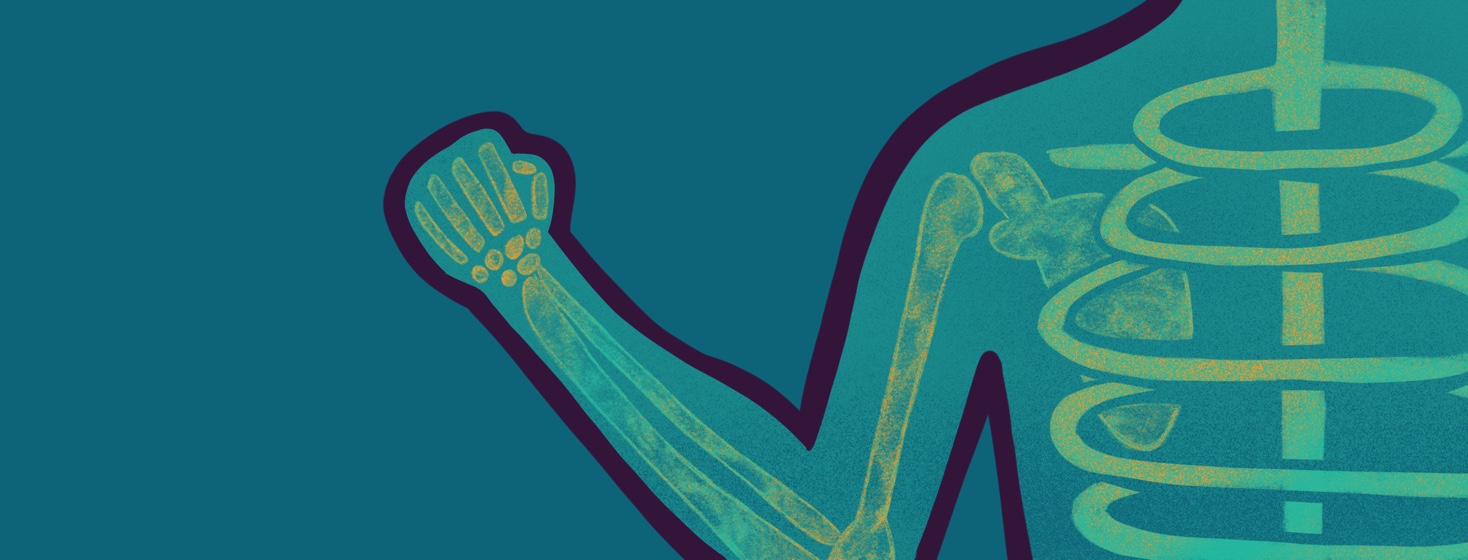Breast Cancer & Bone Health
Bone loss can be a consequence of breast cancer and its treatment. Many of the healthy lifestyle recommendations for women with breast cancer are also good for the bones. Medications may also be used to improve bone health, if necessary.
How does breast cancer affect bone health?
Some age-related bone loss is normal, particularly for women who are older than 65 years, white, postmenopausal, and thin (body mass index <20 kg/m2).1 Additional risk factors for bone loss are a family history of osteoporosis, personal history of oral corticosteroid use, or smoking.1
In addition to these “background” risk factors, breast cancer treatments or cancer itself can cause further bone loss. There are four main reasons for this:
- Estrogen protects the bone, but estrogen also causes some breast cancers to grow and spread. Medications that suppress estrogen are sometimes used to treat breast cancer, but also cause bone loss.2
- Chemotherapy may cause ovarian dysfunction. Because estrogen is mainly produced in the ovaries, ovarian dysfunction causes estrogen levels to decrease.
- Certain chemotherapies can harm bone cells directly, leading to less bone formation.2
- If cancer spreads to the bone, the metastatic cancer cells may increase bone breakdown (“bone resorption”).1
What are the risks of bone loss?
Bone loss increases the risk of fractures and pain. Spinal fractures are five times more common in women with breast cancer than the general population.1 Individuals with bone metastasis have an average of three “skeletal events” per year, which include fractures, spinal cord compression, or the need for radiation or surgery to the bone.3 Fractures and pain can make it difficult to get around and decrease your quality of life.
How is bone loss detected?
Major cancer organizations recommend bone density measurements for some women with breast cancer.4 Bone density is measured with a DEXA (dual-energy x-ray absorptiometry) scan. DEXA scans are recommended for:
- Postmenopausal women who have or had breast cancer
- Women taking aromatase inhibitors, tamoxifen, or a GnRH agonist
- Women with ovarian failure due to cancer treatment
Your provider may recommend a DEXA scan at the start of treatment and periodically afterward to monitor changes in bone density.
What can I do to keep my bones healthy?
Several habits can help to keep your bones healthy4,5:
- Regular physical activity, including weight-bearing exercise. If you are at risk of fracture or lymphedema, your medical team can suggest exercises that are safe.
- Consuming adequate calcium and vitamin D through diet or supplements
- Avoiding tobacco use
- Limiting alcohol intake
- Limiting caffeine
What medications are used for cancer-related bone loss?
If you are at high risk for bone loss or fracture, your provider may recommend medication. The medications most commonly used to treat bone loss in individuals with breast cancer are bisphosphonates (examples: pamidronate and zoledronic acid) and a medication called denosumab (Xgeva).4

Join the conversation